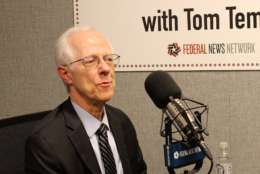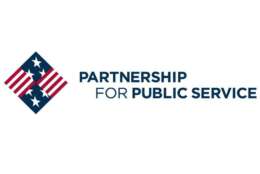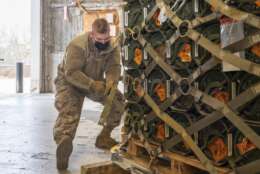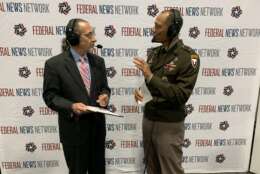Tom Temin
-
In today's Federal Newscast: The Defense Department awards $40 million dollars in research grants to four Historically Black Colleges and Universities (HBCUs). Federal employees and supervisors will get even more hybrid-work training opportunities. And heading toward the 2030 count, the Census Bureau looks for public feedback.
October 18, 2023 -
Conference work on the National Defense Authorization Act for 2024 proceeds, even as nothing else in Congress seems to be working. As always, the NDAA has provisions affecting Defense contractors.
October 17, 2023 -
In today's Federal Newscast, the Partnership for Public Service is out with the latest crop of Service to America Medals, or "Sammies," winners.
October 17, 2023 -
The Service to America Medals program known as the Sammies, administered by the Partnership for Public Service, each year recognizes the most accomplished career civil servants. Here on the Federal Drive we've been featuring interviews with Sammies finalists each week since the spring. Tonight the Partnership will announce the winners at the Kennedy Center. To talk about all of that, Federal Drive Host Tom Temin talked with Max Stier, the President and CEO of the Partnership.
October 17, 2023 -
Insider cybersecurity threats are just as potent as Russian and Chinese hackers. Some employees make mistakes, clicking on that bad phishing link. Unhappy or disgruntled employees, that's another matter. Federal Drive Host Tom Temin talk with someone who says such people are far more susceptible than average to social-engineering attacks. Tom's guest was Max Shier, Chief Information Security Officer at Optiv.
October 17, 2023 -
The 8(a) program. It is a piece of federal jargon that has come to symbolize how the government helps small businesses get their fair share of contracting dollars. Now the underlying assumptions of the 8(a) program are under challenge in court. Could this be the end? For analysis, Federal Drive Host Tom Temin turned to Managing Partner of Centre Law and Consulting, Barbara Kinosky.
October 16, 2023 -
The National Armaments Consortium is a coalition of industry groups, whose members work on the next generation of ordnance and the energetics that power them.
October 16, 2023 -
As the world turns, most of it is probably scratching its collective head at the United States Congress. As the latest crisis, Israel's war against terrorists, enters its second week, President Biden pledged support. So what can we expect this week on the Hill? For more on the matter, Federal Drive Host Tom Temin talks with Zach Cohen, Bloomberg Government congressional reporter.
October 16, 2023 -
In today's Federal Newscast: GSA is taking another step to measure how technology vendors are protecting their supply chains. The Navy moves to shutdown a facility at Pearl Harbor where fuel leaks contaminated water. And the IRS has spent $2 billion to rebuild its workforce and modernize its legacy IT systems.
October 16, 2023 -
In today's Federal Newscast, federal agencies may get tools to hire military and law enforcement spouses as well as veterans quickly for remote positions.
October 13, 2023 -
Tanks, armored vehicles, trucks: The Army buys them all from contractors. But over their sometimes long life cycles, the Army relies on its own production and maintenance facilities. Those make up what the military calls the organic industrial base. At this week's Association of the U.S. Army (AUSA) conference, Federal Drive Host Tom Temin got an in-person, one-on-one update from Brig. Gen. Michael Lalor, the Commander of the Army's Tank-automotive and Armaments Command.
October 13, 2023 -
Both open and closed seasons are coming up. November 17 will mark the end of the continuing resolution, so the government could close when the money runs out. Just a few days earlier, open season arrives. That is when federal employees choose a health insurance carrier for 2024. For the rundown on all of this, Federal Drive Host Tom Temin spoke with John Hatton, of the National Active and Retired Federal Employee Association (NARFE).
October 13, 2023 -
Now two wars, which the U.S. is helping to supply, put the strain on the defense industrial base
October 12, 2023 -
When Congress passed the so-called Bipartisan Infrastructure law two years ago, it also strengthened buy-American requirements for construction projects. Now the final guidance is out from the White House on the BABA part of the law, Build American, Buy American.
October 12, 2023 -
Army platforms depend on software, and software has to run on the often old or limited hardware mounted aboard ground vehicles.
October 12, 2023















